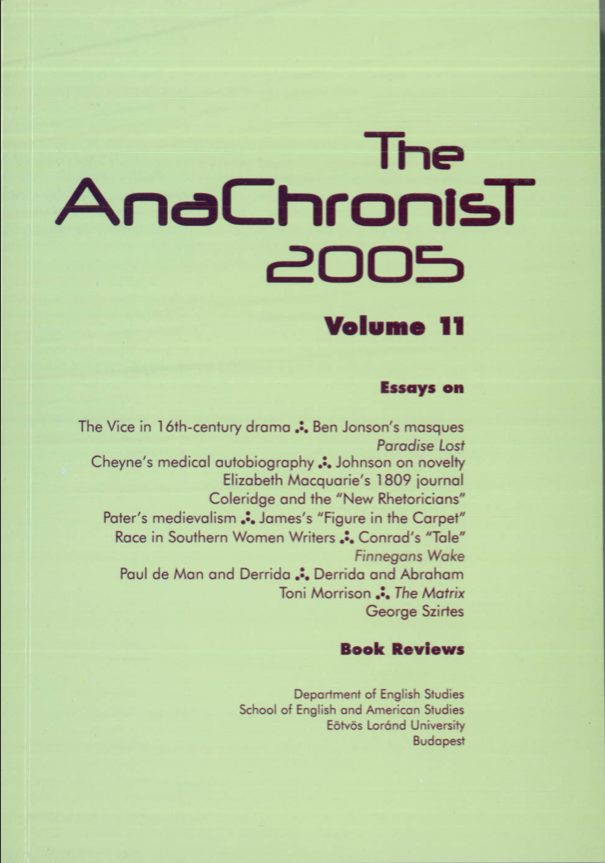The Ironical Allegory of Remembrance and Oblivion
(In Memory of Paul de Man and Jacques Derrida)
DOI:
https://doi.org/10.53720/MBQN3818Abstract
Paul de Man, in Allegories of Reading, refers to irony as the key rhetorical and linguistic figure of his allegorical readings. It looks as if everything/it was turned upon by irony: the figure is shown as the trope of tropes, the essence of rhetoric. The surprising and effective ending can also be read as the beginning of another story which would be about the understanding of the relation between irony and allegory. "I have never known how to tell a story," Derrida says in the opening of his lecture-series, Mémoires, dedicated to his friend de Man's memory. This story of remembrance introduced by an ironical and self-reflective statement, which can be taken as the mirror-image of the de Manian closing, is speaking about the allegorical reading, or rather unreadability of irony. In this particular story, embedded in the context of allegory and irony, such flowers of rhetoric flourish as Mnemosyne, Lethe, Psyche or Narcissus. In my text I am trying to interpret these rhetorical figures in these two thinkers' works, while the recurrent 'narcissus' becomes the rhetorical flower of (my) reading.

